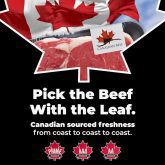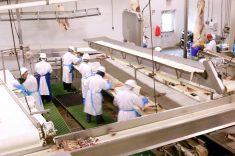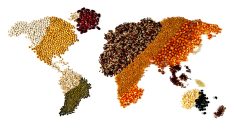Okay, the web says Canada is a “constitutional monarchy” with a “Westminster-style parliamentary democracy.” Exactly how do Canadians expect mere Americans to savvy all that?
The question occurred to me reading that Prime Minister Justin Trudeau and President Donald Trump appear to have the same respect for the rule of law, when it comes to China and Ms. Meng Wanzhou. The CEO of Huawei has said he would not hand over user data to the Chinese Communist Party (CCP) from his company’s networks. By China’s statutes he would have to. How does a Chinese company refuse the CCP?
Read Also

A strategic approach to risk on the ranch
Given the increase in the value of livestock and the market volatility, we need to cover our risks. First,…
Officially, Ms. Meng is accused of bank and wire fraud in getting around Iran sanctions. Canadians are not forgetting the two men seized by the CCP as pawns in this international incident. While some of Trudeau’s party members have urged compromise, according to Canadian commentator Michael Taube, Trudeau has held firm.
“We are a country of the rule of law…” the PM said at a news conference.
It makes us more confident down here, knowing that even a left-leaning politician like Trudeau can agree with Trump and hold firm on national security issues. You might have heard that China’s extensive network of professors and researchers is being revealed down here. Even the chairman of Harvard’s chemistry department has been working for the Chinese, running a research lab for them in China, using their funding to conduct research and pay grad students at Harvard and pocketing some nifty payments and living expense monies.
There has also been good commentary about Brexit’s long-term political meaning. Long before U.K. voters lost patience with the EU, I believed a trade relationship with the EU was fine. But I couldn’t imagine that a governmental arrangement would work. It’s very difficult to deal with a government seated in the other end of one country, as we in both Canada and America know. Spanning a large geographic area with totally different cultures and politics, especially in the high-handed style of EU bureaucrats, would certainly not suit a country with the tradition of English law in its citizens’ DNA.
Commentators have debated how similar the “revolt” of the “Leave” U.K. voters is to the 63 million in the U.S. who voted for Trump. People used to voting and a representative form of government were, in both cases, tired of the political elite ignoring them at best or using political manoeuvering to get around their wishes at worst. Now, as one commentator pointed out, British politicians will no longer be able to blame Brussels for doing or not doing something. The voters can hold them directly accountable.
Now that Brexit has happened, the U.K. can negotiate a trade deal with the U.S. Even before official Brexit, trade officials were grousing that U.S. chicken that had been processed using a chlorinated water spray to kill pathogens would be unacceptable. The environmental minister said “hormone-treated” beef is out.
The U.K. is going to really need a trade deal, given that they must wrestle with the EU on their future trade, tariff and regulatory relationship. Prime Minister Boris Johnson wants to get his new EU deal by the end of 2020. Johnson’s negotiators would do well to read up on President Trump and U.S. Trade Representative Robert Lighthizer (see Japan, South Korea, China, Mexico and Canada trade negotiations).
Those deals done, Trump and Lighthizer are focusing on the EU. Trump is still threatening 25 per cent auto tariffs on the EU if it doesn’t agree to negotiate. Germany is very nervous over that prospect. Japan wasted no time in getting a deal done that keeps those tariffs away from their auto industry. The U.S. has insisted that agriculture must be on the agenda and the EU has resisted, with France pushing hard in opposition. We haven’t been able to ship conventional beef to the EU for 30 years. Both their own scientists and ours have said our beef is perfectly safe but Europe’s experts at non-tariff trade barriers have ignored that. Speaking of elitists running things. They know what is best for everyone!
Speaking of changes, knowing a bit about China’s past food safety problems and hearing that the Chinese government has claimed the coronavirus originated in one of Wuhan’s wet markets, I wondered if this could be opportunity for meat produced under Western food safety standards. This may be a catalyst for China to begin moving away from that model, although judging by the photos of strings of dead critters lined up on tarps for customers to choose, obviously, their expectations are a wee bit different than mine. We used to eat squirrels and rabbits but not whatever those critters were.
















